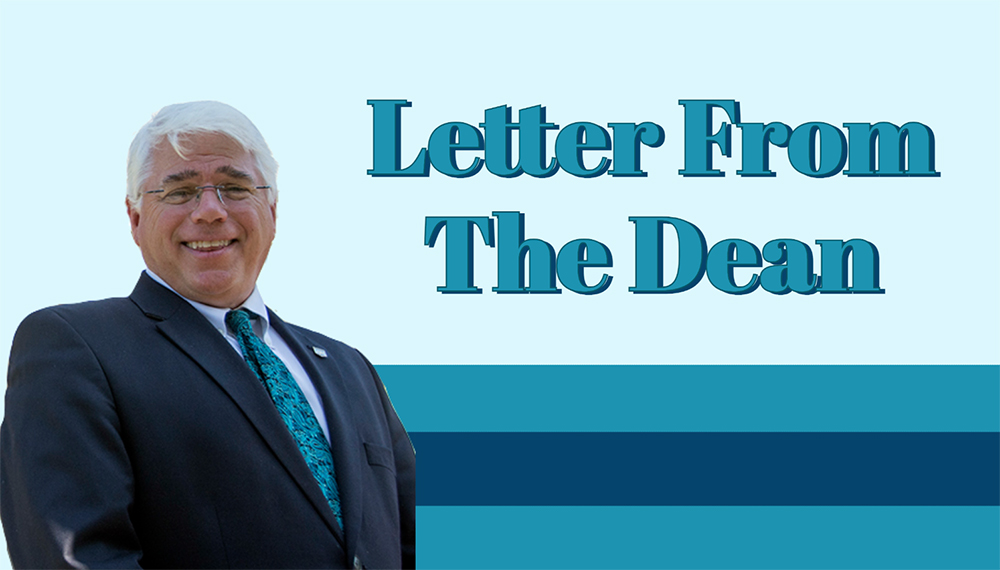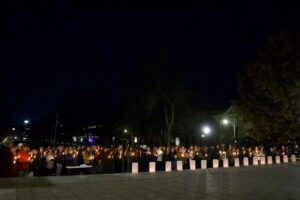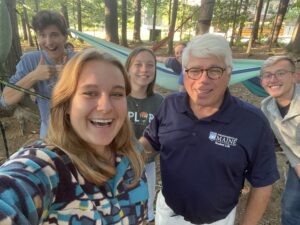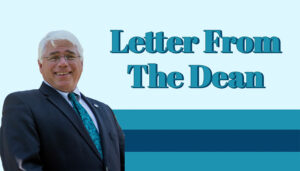Surely, we hear about leadership in our daily lives, but what does that really mean? Thinking about recent history tells me that we need leaders and we need them now.
Social problems like poverty, drug abuse, homophobia, religious intolerance, racism, cultural appropriation and a long list of other ills plague society. Add to that climate change; associated problems like drought; pandemic-induced stresses, including isolation and disturbances in supply chains and people’s sense of safety; the ever-increasing politics of division and discord and we can all begin to see fractures in our cultural and societal makeup. We can heal this corrosion in the societal fabric.
Social scientists have, for years, warned that these fractures are further stressed by people withdrawing into themselves, worrying about themselves versus others or seeking refuge from the storms by avoiding community and can lead to perilous outcomes on the health and wellbeing of any society. Great societies have fallen over the millennia and while it’s difficult to believe this could happen to us, maybe it’s possible.
The social scientists I mentioned earlier don’t advocate that we throw our hands up and retreat from the discussion. They argue that working to satisfy our own needs by getting involved, doing something that supports our communities, serving others and making a difference can help sew back the cultural cracks that are so worrisome. It seems simple to get involved, but that might take reassessing where we are in life, how we want to be involved and what we can do to be part of solving problems big and small.
Can any one of us singlehandedly fix the problems we all face? No. We can, however, be part of the solution. Here at the University of Maine there are lots of examples of people helping to fix the world one effort at a time.
Think of all the student organizations on campus. These groups and their members are working to bring people together, to expect that the members support each other, and, in most cases, that there is a collective output from the group. I call that putting in as opposed to taking out, and it can include service to local community agencies like hospitals, Boys and Girls Clubs, youth groups, towns and communities, elder services and social programs that serve children and adults alike. The service is sometimes in person, sometimes through raising money or simply by showing up and supporting an important effort that is bigger than our own self interest. When you think about the 200-plus groups here on our campus the numbers, time and effort begins to multiply quickly.
Add that to the letters people write in support of programs, letters to the editor calling for change or the myriad groups and organizations of our faculty, staff, students, parents, friends and neighbors and the healing effects on a troubled and torn fabric are monumental.
No, we can’t do all of it alone, but we can do our part and we can encourage others to do their parts. With a focus on the needs of others we become healthier, more engaged, less troubled and more likely to live a fulfilled and satisfying life.
Maybe it all boils down to us seeing that while it’s easy to be drawn into caring only for ourselves or for our family – or going along with an angry approach to life and withdrawing and losing trust – that isn’t the best way to assure a life well lived. Instead, let’s consider the possibilities of what we can do for our community and our friends and our society. We all need each other and answering the call to service in any way you can will, I promise, make you happier and more productive. And, as a wonderful side benefit, our world will be a better place too.







